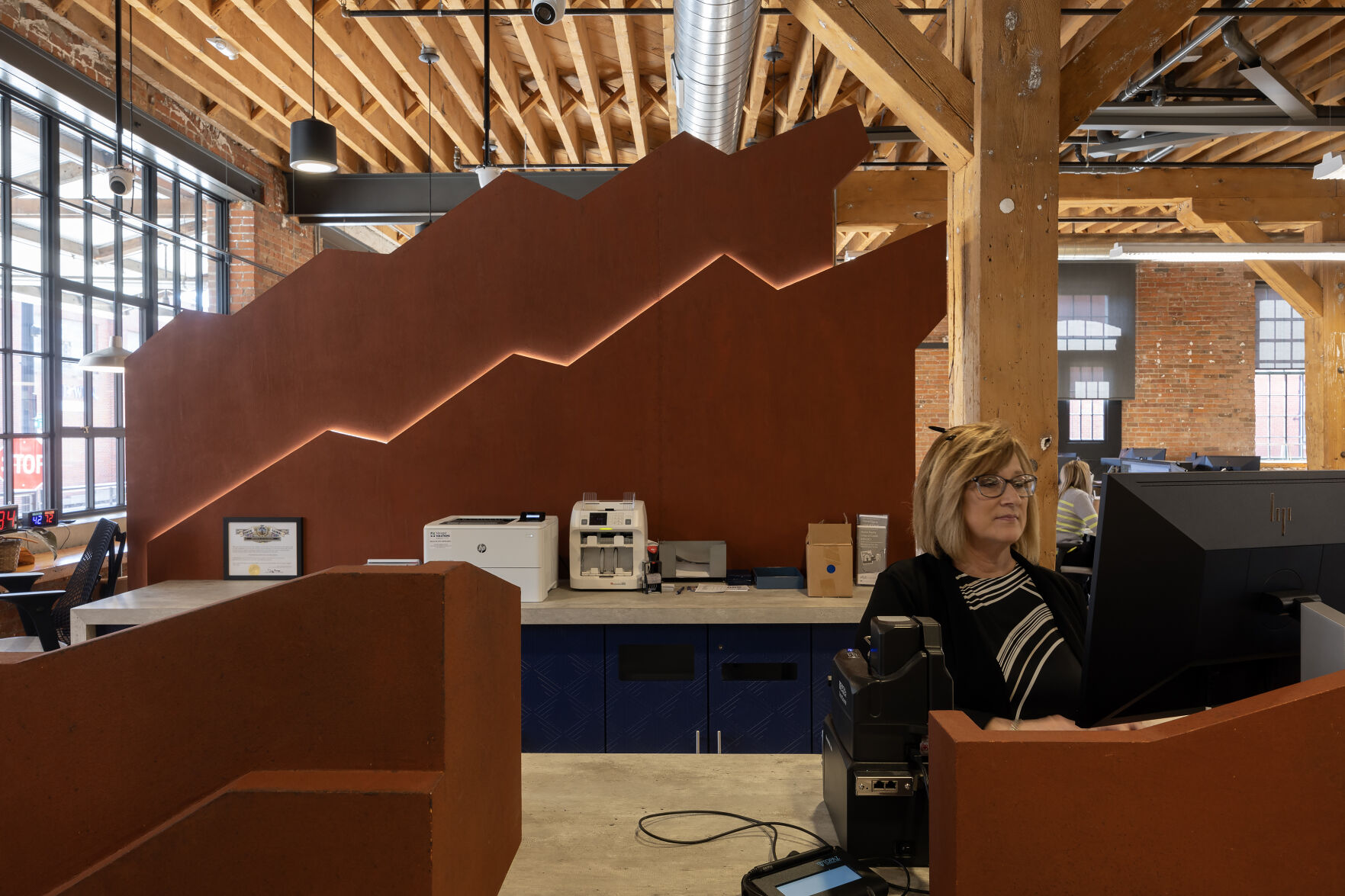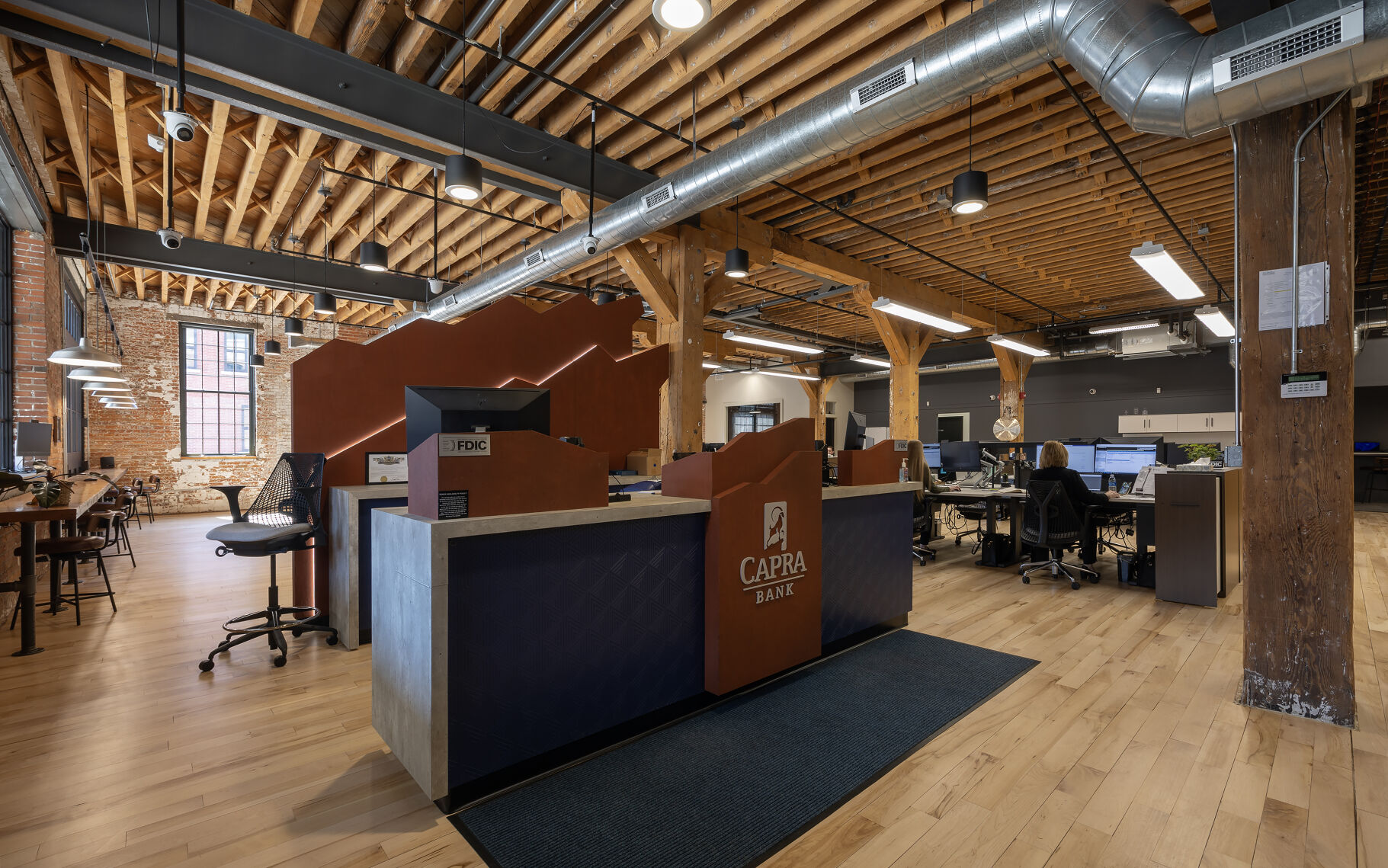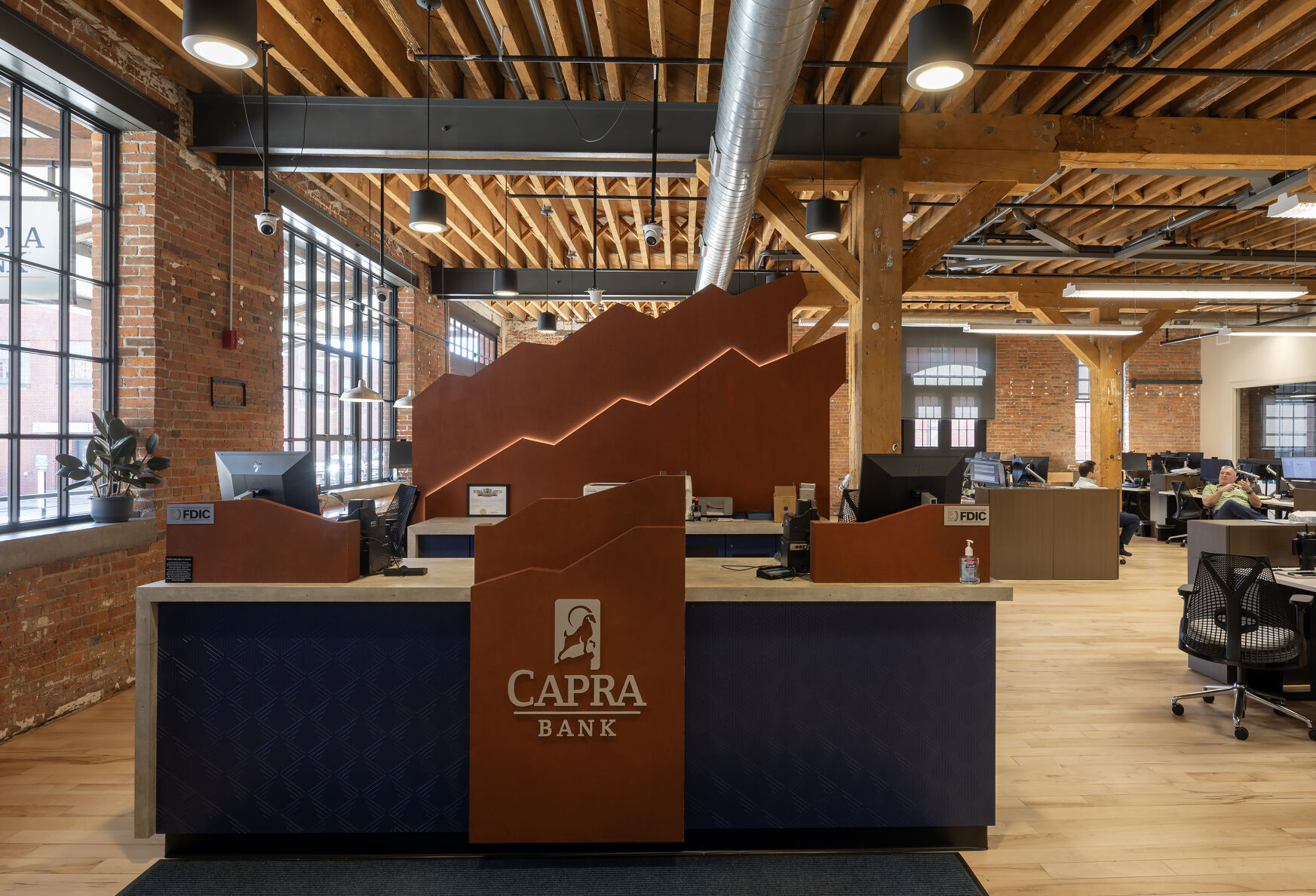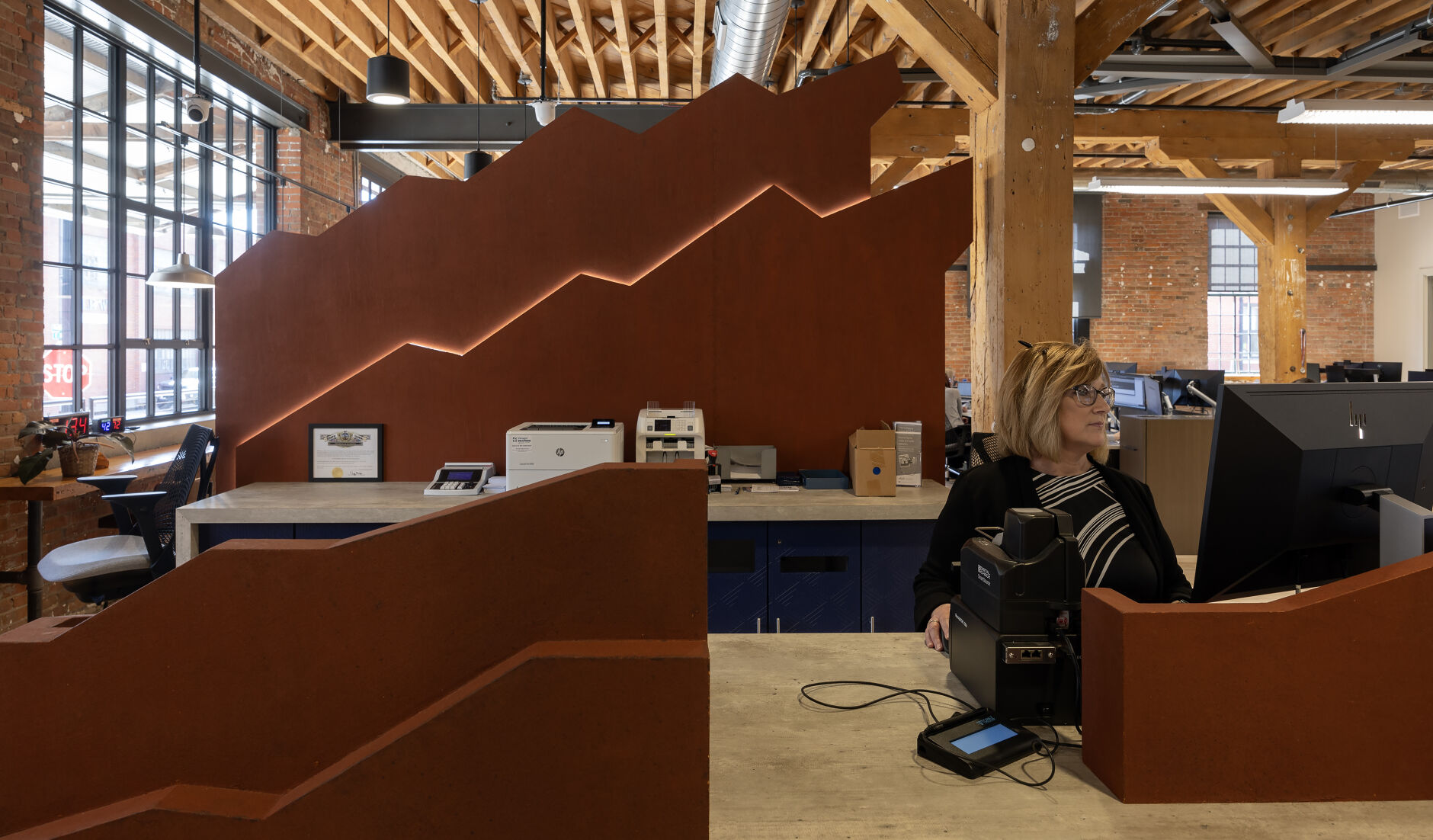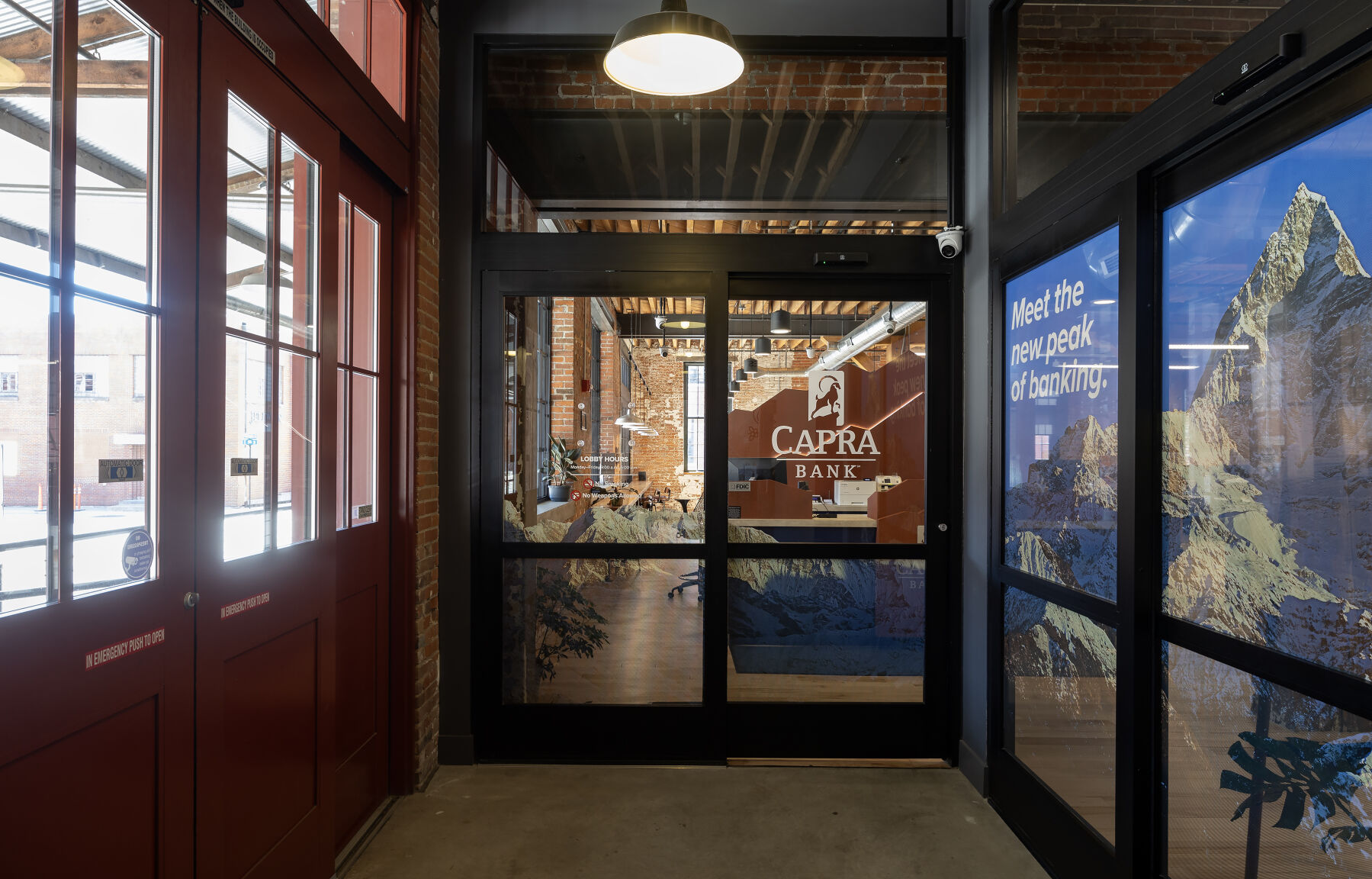Since Capra Bank opened its Dubuque office last year, the space has operated as a sort of living, breathing hypothesis.
“This really all started as a question of what was possible,” said CEO Tut Fuller. “For the longest time, you needed a tremendous amount of capital to start a bank. We wanted to push back on that standard and see if you can create a great, local bank by starting small.”
One year later, Fuller is feeling optimistic.
Capra now boasts over $300 million in assets and employs roughly 50 people to serve hundreds of businesses and personal banking clients. It has expanded its footprint into new markets and upgraded its technology, all while keeping a local focus.
“We’ve really seen success in community banking here,” said Capra President Tyson Leyendecker. “We’re able to put the client at the center of the equation and help them solve their problems and uncover that next opportunity.”
Capra Bank started in late 2022 when Tut Fuller and his brother, Thomas, purchased and subsequently renamed Peoples Savings Bank in Montezuma, Iowa, to serve as a launchpad to break into the Dubuque market.
Within months, they did just that.
Capra Bank opened in Dubuque’s Historic Millwork District at 955 Washington St. in April 2023, and the office later was designated as the company headquarters. The Montezuma bank remains open as a branch location, along with a location in Lubbock, Texas, that opened in September.
“I really do see this (Dubuque) location as the true launch of Capra,” Fuller said. “Yes, we had the location in Montezuma before then, but our goal was always to get here.”
The dual focus of the bank then and now, Fuller explained, is on high-quality technology and the recruitment and retention of high-quality staff.
Most of Capra’s employees have long histories in the Dubuque banking scene — including both Fuller and Leyendecker, who previously worked at Dubuque Bank & Trust — which Fuller said helped give the bank “instant credibility” upon opening.
Members of Capra’s board of directors have a similar level of connection and history in the Dubuque area, including Lynn “Butch” Fuller, who previously served as CEO of DB&T’s parent company Heartland Financial, and Doug Horstmann, past president of DB&T.
“Relationships are important,” Fuller said. “Having a great brand and great technology and then adding really great talent that had those existing relationships … it really gave us some instant legitimacy from the minute we opened.”
Roughly 20 of Capra’s 50 staff members work in the Dubuque office, said Megan Michel, Capra’s senior vice president of operations. The rest either work remotely or in the Montezuma or Lubbock locations.
The Dubuque space was laid out using an open floor plan to allow employees from various levels and departments to easily connect, she said. There are several meeting rooms, but very few offices.
Salespeople sit next to commercial bankers, who work across from consumer bankers or retail staff.
“With the way the bank was designed, we all have the opportunities … to learn from each other,” Michel said. “You can really see all sides and all aspects of how the company operates, and I think it makes us better, more holistic bankers.”
Michel and other Capra leaders credit much of the bank’s early success to that attitude, as well as the bank’s local focus.
Bankers at each Capra location aim to recycle local funds toward local projects versus lending to projects in more distant markets, said Commercial Banking Vice President Josh McQuillen. That means Dubuque-area deposits go toward supporting Dubuque-area projects.
“It’s a model that we all really rally behind,” McQuillen said. “It’s really empowering and really rewarding to go out and serve your customers that way.”
Already, the bank has supported several commercial, residential and retail projects in and around the Dubuque area.
That same focus will continue as the Dubuque office enters its second year, Leyendecker said, bolstered by improvements to the bank’s internal and consumer-facing technology equal to or better than that of regional and national lending institutions.
“In today’s rapidly changing environment, we’re thinking of technology as the way to deliver those products and services that clients need and build upon and educate them around those things,” Leyendecker said.


